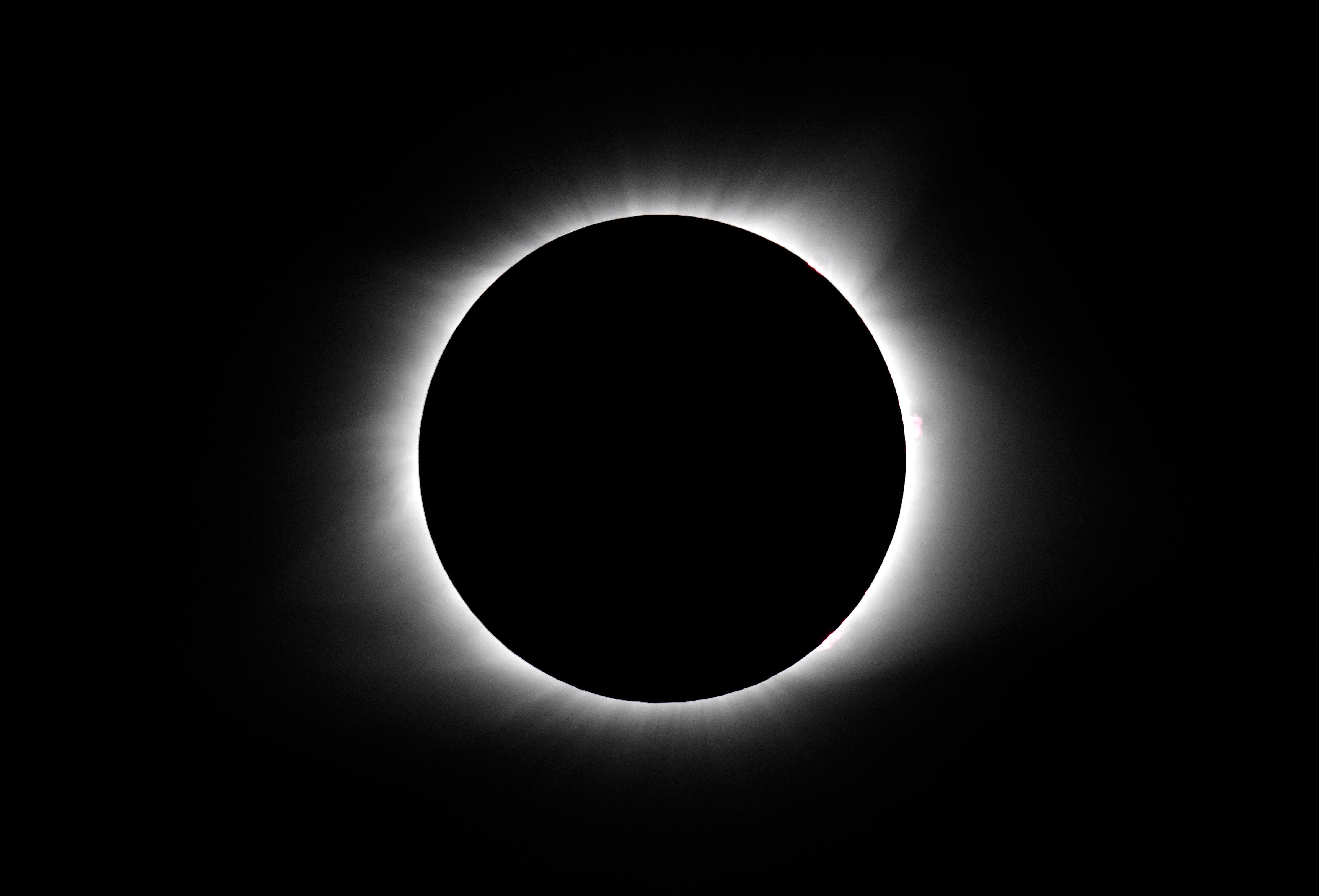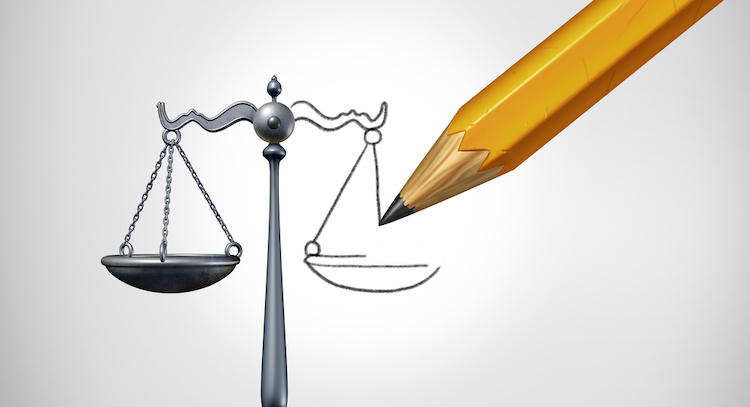Inmates in New York are suing to be allowed to see the solar eclipse

The moon covers the sun as it creates a total eclipse on Aug. 21, 2017, in Cerulean, Kentucky. (AP Photo/Timothy D. Easley)
New York inmates are suing the state over its plan to lockdown prisons during next week’s solar eclipse, alleging that in barring them from viewing the rare phenomenon, the corrections department is stripping them of their constitutional right to exercise their religion.
The six plaintiffs in the class-action suit filed Friday, who are Christian, Muslim, Santerian and atheist, are asking a judge to allow them to see the celestial event, arguing it has religious significance. Some said it is critical to their practice of their faith—because the Bible describes the sun going dark during the crucifixion of Jesus Christ, because Muslims perform a special prayer upon the eclipse and because it is important in the Santeria faith to make a spiritual offering.
“Watching the eclipse with the people I know here is a way for me to feel closer to God,” wrote Travis Hudson, a Protestant Baptist, in a statement attached to the lawsuit, which was filed in a northern New York federal court against the top leaders of the New York Department of Corrections and Community Supervision.
Monday’s total solar eclipse, the second in the United States in seven years and the first one in New York in nearly a century, has caused a flurry of excitement nationwide. More than 31 million people will be able to see the eclipse outside their homes, as the air suddenly cools, birds fall silent and nocturnal animals begin to stir. Millions more plan to travel to see it firsthand, fueling a small spending boom and a potential path of gridlock across the country.
Those incarcerated at the Woodbourne Correctional Facility in New York say they should be allowed to view it, too. They filed the suit Friday, after DOCCS acting commissioner Daniel F. Martuscello III last month announced plans to lock prisoners in their housing units from 2 to 5 p.m. on April 8 and prohibit them from watching the eclipse in the yard, citing safety concerns.
“Religious freedom is at the heart of not only our constitution, but our shared humanity,” Madeline Byrd, one of the attorneys representing the inmates, said in a statement. “This historic eclipse is religiously significant to people of many different faiths, and we are fighting for everyone’s right to observe it.”
In a statement, DOCCS spokesperson Thomas Mailey said the ban was for the safety of the prison population. He did not elaborate on the reasoning behind the decision. The department will provide solar eclipse safety glasses for its staff and inmates in case they can “view the eclipse from their assigned work location or housing units,” Mailey said.
The department also suspended visitation the day of the eclipse to make sure “visitors and staff are not stuck in traffic or otherwise stranded.”
The court ordered the department respond to the complaint by Thursday evening, and the plaintiffs must reply the next morning. The case could be resolved as early as Friday, Byrd told The Washington Post—and would need to be resolved within the next few days to give the plaintiffs a chance to see the eclipse.
In January, before the lockdown was announced, plaintiff Jeremy Zielinski requested that Woodbourne recognize the eclipse as a religious event. On March 5, he was told his request had been granted, and that the facility would buy him viewing glasses to watch the eclipse. Zielinski, an atheist, said in the court filing that he wanted to view the eclipse to celebrate scientific achievement, part of a larger spiritual pursuit of truth and awareness.
Six days later, Martuscello announced plans to restrict inmates’ solar eclipse viewing. The next day, Zielinksi filed a grievance complaint that DOCCS violated his rights by preventing him from viewing the solar eclipse with others, which he said was necessary for his practice as an atheist. Fearing the grievance process would not conclude until after the eclipse had already happened, Zielinski became the lead plaintiff in the lawsuit.
Zielinski, who described his faith in a court filing as a religious devotion to using science and reason to ask and answer questions, argued in his written statement that the event is a chance to seek knowledge, ask questions and bring people together.
“Moments when people of vastly different faiths converge in a single shared joy are exceedingly rare,” Zielinski wrote. “The price of missing any is unknowable, but substantial by any measure.”
Federal law provides “very robust protection” for religious freedom in state prisons, and the inmates’ claims could have merit, said Josh McDaniel, director of the Religious Freedom Clinic at Harvard Law School. “The plaintiff just needs to show that this is a sincere religious belief. The fact that you have multiple plaintiffs from multiple different religious traditions lends credence to the sincerity.”
In written statements to the court, the plaintiffs laid out their individual religious reasons and argued that it’s important to see the eclipse with other people of faith.
“Congregating with other people of faith when possible to enjoy merciful Allah’s great Creation is a very important religious duty,” wrote Jean Marc Desmarat, who said the eclipse was religiously significant because “there is a special prayer inscribed in the Holy Quran that we are supposed to perform as the Prophet (peace be upon him) did.”
The plaintiffs also questioned the prison’s basis for rejecting their requests to view the eclipse. In a memo from the corrections department, filed with the lawsuit, a prison administrator denied one inmate’s request citing a policy that incarcerated people can only observe holy days of their designated religion. The department’s holy day calendar does not include the solar eclipse, inmates practicing Islam and Santeria were told.
“I do not understand why a calendar made by DOCCS, who is not able to say what is and is not holy to me or in Santeria, matters,” Bruce Moses wrote.
Oscar Nunez, another member of the Santeria community at the prison, said the eclipse is an opportunity “to partake in a rare religious experience that will bring blessings and help me reach my religious goals.”
“Members of the Ile (home) pray and chant to Ochu (the Moon) and Orun (the Sun) for blessings. When they meet in the eclipse this allows the vibrations of the Orishas to bless those who pray and chant,” Nunez wrote.
David Haigh, a Seventh-day Adventist, cited the Bible, referencing Jesus’ death and God’s creation of light and darkness.
“I believe that being able to see all these forces coming together is a very important event, one which I have never been able to see before and which will not be available again for a very long time,” he wrote.



